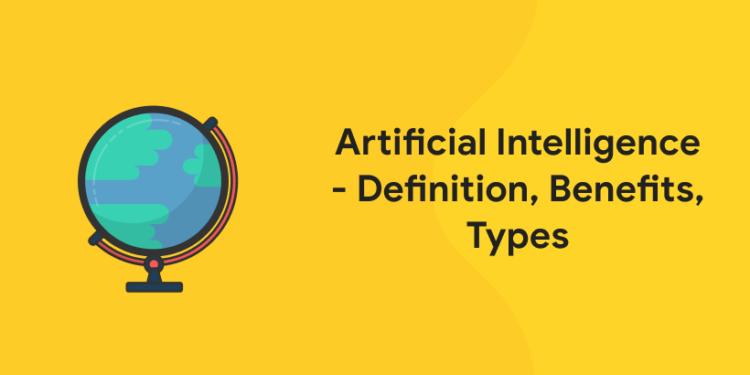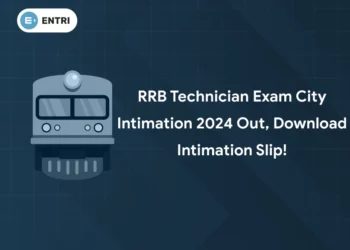Table of Contents
Artificial intelligence (AI) is a wide-ranging field of computer science and robust datasets concerned with building smart machines, especially computer programs, capable of performing tasks that generally require human intelligence.
AI has taken over the world. Artificial intelligence (AI) is truly an extensive feat of computer science, set to become a fundamental component of all modern software over the coming years and decades. This presents a threat but at the same time an opportunity. AI will be deployed to expand both defensive and offensive cyber operations.
Artificial Intelligence – Definitions
In the mainstream, AI refers to computational tools that can be a suitable substitute for human intelligence in the performance of explicit tasks. There are quite a number of definitions for Artificial Intelligence(AI). Let us have a look at some of them.
- Artificial intelligence is intelligence demonstrated by machines, as opposed to the natural intelligence displayed by animals including humans.- Wikipedia
- The ability of a digital computer or computer-controlled robot to perform tasks commonly associated with intelligent beings.- Britannica
- A branch of computer science dealing with the simulation of intelligent behaviour in computers is called Artificial Intelligence.- Merriam Webster
Attempt our free current affairs Mock Test
AI Concepts and Approaches
Less than a decade after cracking the Nazi encryption machine Enigma and serving the Allied Forces win World War II, famous mathematician Alan Turing created history a second time with a simple question: “Can machines think?”
Turing’s paper “Computing Machinery and Intelligence” which was published in 1950, and its subsequent Turing Test, established the prime vision and goal of artificial intelligence.
At its core, AI is simply the branch of computer science that focuses to answer Turing’s question in the affirmative. Thus, it is the endeavour to simulate or replicate human intelligence in machines.
The extensive goal of artificial intelligence has indeed given rise to numerous questions and debates. So much so, that not a singular definition of this field is universally accepted.
Artificial Intelligence – Benefits
1: Who was the first woman President of India?
Artificial Intelligence is one of the main emerging technologies which tries to simulate different human reasoning in computer systems. The term Artificial Intelligence was invented by John McCarthy in the year 1950.
Artificial Intelligence or AI is the capacity of a computer program to learn and think. Everything can be regarded as Artificial intelligence if it involves or incorporates a program doing anything that we would normally think would rely solely on the intelligence of a human.
The benefits of Artificial Intelligence applications are huge and can revolutionize any professional sector. Let’s have a look at some of them:
- Reduction in Human Error:
Humans make mistakes from time to time. As a result, the phrase “Human Error” was born. However, computers do not make these mistakes if they are programmed the right way. With Artificial intelligence, the decisions are generally taken from the previously collected information by applying a certain set of algorithms. Therefore, errors are reduced and the chance of reaching accuracy with a greater degree of precision is a probability.
An example of this benefit is the application of artificial intelligence in the weather forecasting field where the number of human errors has been reduced.
- Available 24×7
On average humans will work for 4–6 hours per day excluding the breaks. Humans are made in such a way to get some time out for refreshing themselves and get ready for a new day of work and they also have weekly off to stay intact with their work-life and personal life. But by using AI we can make machines work 24×7 without any breaks and they don’t even get tired or bored, unlike humans.
An example of this advantage can be seen in Educational Institutes and Helpline centres getting many queries and issues which can be handled effectively using AI.
- Risk Takers
This is one of the greatest advantages of Artificial intelligence. Many risky limitations of humans can be overcome by developing an AI machine or robot which in turn can do the risky jobs for us. Be it going to mars, exploring the deepest parts of oceans, diffusing a bomb, mining for coal and oil, AI can be used productively in any kind of natural or man-made disaster.
- Faster Decisions
Using AI alongside other technologies can make machines take decisions faster than humans and carry out actions quicker. While making a decision, humans will analyze different factors both emotionally and practically whereas AI-driven machine works on what is programmed and deliver the results in a faster way.
We all have played games like Chess on Windows. It is almost impossible to beat the CPU in the hard mode just because of the AI behind that game. It takes the best possible step in a very short time according to the programs or algorithms used behind it.
Download the Entri App now and ace your exam like a pro!
Artificial Intelligence – Types
The degree to which an Artificial Intelligence system can clone human capabilities is used as the main criterion for determining the types of AI. Therefore, depending on how a machine compares to humans with regard to performance and versatility, AI can be sorted under one, among the various types of AI. Under such a system, an AI that can accomplish more human-like functions with equal levels of proficiency will be considered as a more advanced and evolved type of AI, whereas an AI that has limited performance and functionality would be considered a simpler and less advanced type.
On the basis of this criterion, there are two ways by which AI is usually classified. First is based on classifying AI and AI-enabled machines on the basis of their likeness to the human mind, as well as their ability to “think” and possibly even “feel” like humans. According to this approach of classification, there are generally, four types of AI or AI-based systems namely, reactive machines, limited memory machines, theory of mind, and self-aware AI.
- Reactive Machines
These are the oldest forms of AI systems having the extremely limited capability. They copy the human mind’s ability to respond to various kinds of stimuli. These machines also don’t have memory-based functionality. This means such machines cant use previously gained experiences to notify their present actions, i.e., these machines don’t have the capacity to “learn.” These reactive machines could only be used for responding automatically to a limited set of or combination of inputs. They cannot be used to rely solely on memory to improve their performances based on the same. A popular example of a reactive AI machine is IBM’s Deep Blue, a machine that was responsible for beating chess Grandmaster Garry Kasparov in 1997.
- Limited Memory
These machines, in addition to having the capabilities of purely reactive machines, are also effective in learning from historical data to make decisions. Almost all existing applications that are known come under this category of AI. All present-day AI systems, like those using deep learning, are trained by large volumes of training data that they have stored in their memory to form a reference model for solving all future problems. For example, an image recognition AI is trained using thousands of pictures and their labels to teach it to name the objects it scans. When an image is, however, scanned by such an AI, it uses the training images as references to recognize the contents of the image presented to it, and based on its “learning experience” it identifies and labels new pictures with increasing accuracy.
Almost all the present-day AI applications, from chatbots and virtual assistants to all self-driving vehicles, are driven by limited memory AI.
- Theory of Mind
While the previous two types of AI have been and are found in abundance, for now, the next two types of AI exist, as a concept or a work in progress. Theory of mind Artificial Intelligence is the next level of AI systems that the researchers are currently engaged in revolutionizing. A theory of mind AI will be better able to recognize the entities it is interacting with by discerning their needs, beliefs, emotions, and thought processes. While artificial emotional intelligence is already a budding industry, achieving the Theory of mind level of AI will need development in other branches of AI as well. This is, however, to truly understand human needs, AI machines will have to perceive humans as individuals whose minds can be shaped by various factors, especially, “understanding” humans.
- Self Aware
This is the final stage of AI advancement which exists currently only hypothetically. Self-aware AI, is an Artificial Intelligence that has evolved to be so akin to the human brain that it has actually developed self-awareness. Creating this type of AI is not centuries away from materializing, and will always be the paramount objective of all AI research. This type of AI will not only be able to recognise and evoke emotions in those it interacts with, but also have needs, emotions, beliefs, and potential desires of its own. And this is just the type of Artificial Intelligence that doomsayers of modern technology are wary of. Although the advancement of self-awareness can potentially boost our progress as a civilization by leaps, it can also possibly lead to catastrophe. This is because once self-aware, the AI would have the potential of having ideas like self-preservation which may directly or indirectly spell the beginning of the end for humanity. Also, an entity like this could easily outmanoeuvre the intellect of any humankind and plot elaborate schemes to take over the entire humanity.
The alternate approach of classification that is more generally used in tech language is the classification of technology into Artificial Narrow Intelligence (ANI), Artificial General Intelligence (AGI), and Artificial Superintelligence (ASI).
To summarise, the ultimate goal of AI is to contribute software that can reason on input and elucidate on output. Artificial Intelligence will deliver human-like interactions with software and offer decision support for certain specific tasks, but brace yourselves, it’s not a substitute for humans – and won’t be anytime soon.














